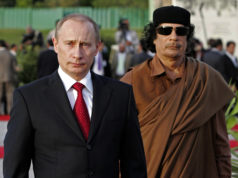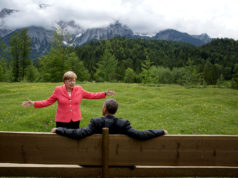On October 30, 2011, the Jewish Policy Center brought together American Thinker co-founder Richard Baehr, The Jerusalem Post deputy managing editor Caroline Glick, and Foundation for Defense of Democracies president Cliff May for a roundtable discussion. The event, “The Arab Upheaval: Spring or Winter for America and Israel?” was moderated by radio talk show host Michael Medved and located at Beth Hillel Congregation Bnai Emunah in Chicago, Illinois. Click HERE to view the video in its entirety.
The panelists began with a discussion of Egypt. On how the Arab Uprising has affected Egypt’s relations with Israel, Glick said, “The best thing you can say about the Arab Spring so far is that it hasn’t yet led to the cancellation of the peace treaty with Egypt, although that will probably happen in short order either formally or in practice”. She added, “Bringing down Mubarak was one of the most horrific moves by an American president that I can think of because…what he is doing is releasing the furies. Egypt is a country with 70 million people. They have an American military the likes of which Israel never saw on a battlefield that makes the enemy [Israel] faced in 1973 look like a walk in the park. And we nearly lost that war. The United States has just taken a knife to its most important ally in the Arab World. [Egypt] was a pillar to the American alliance structure in the Arab World and it is gone”. On the subject of American-Egyptian relations being strained, she said, “The United States’ leverage over a post-Mubarak Egypt has gone down”.
The subject of Syria was also addressed. May stated, “Syria is the bridge that Iran has into the Arab World. Syria has been the host of Hamas. Syria has been the enabler and the patron of Hezbollah. If Asad falls, it will be very consequential and it will be very useful and very good. Now, do we know if what follows Asad will be wonderful? We do not, but it could be better than what we have right now. A chance for Asad to fall means a once-in-a-generation possibility to redraw the geostrategic map of the Middle East. That is a useful thing. The Israelis think so as well. [If he falls, Asad] would be the first full anti-American to fall in the Middle East.” For his part, Baehr noted that the United States’ noninterventionist “behavior in Syria has been awful,” as it essentially signifies support for the Syrian regime.
The nature and destiny of Islamism were also discussed, as was American policy towards Islamist regimes. The panelists noted that most new Arab Uprising governments are Islamist-leaning. On the White House lending support to Arab revolutions with the hope that more liberal Islamist regimes would be established, Glick said, “[The term] Moderate Islamist is an oxymoron. The United States had a lot of leverage in many of these [Arab] countries and it is squandering it by supporting what they consider to be moderate Islamist forces, which are actually enemies of the United States and enemies of all the values the United States is trying to spread in the world. The United States should actually be seeking to weaken these forces.” Said May, “[Islamism] wants to see the world Islamicized…with [the] establishment of Sharia everywhere on earth.” According to Baehr, “This administration sees anything that is not al-Qaeda as acceptable, which is problematic.”
The panel also noted Turkey’s move under Prime Minister Recep Tayyip Erdogan from a secularist nation aligned with Israel and the West to an anti-Zionist country aligned with the Islamist bloc against the West. Baehr said, “[The administration’s] perspective has been that we are not at war with Islam. Their view is that Turkey is a member of NATO. They have free elections. The party that won represents the will of the people. They’ve become pretty hostile to Israel. I think [the White House is] pretty clueless about where Erdogan is taking Turkey. The view that he will be an American agent and represent American interests is misguided.”





